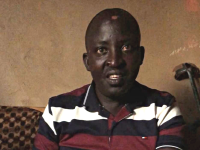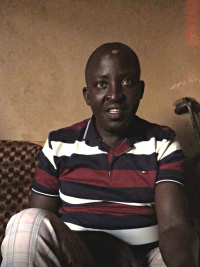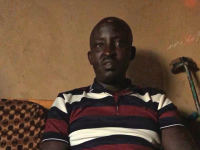I lived the Rwandan genocide twice

Download image
John Giraneza was born in 1975 in Rwanda into a wealthy Tutsi family. His father had ten wives, extensive properties in the capital city of Kigali, and in addition over 300 cows, the number of which is the alpha and omega of status in Rwandan society. John’s mother moved back in with her first husband during his childhood, and John spent his early years wandering among distant relatives. They did not consider basic education important, so they assigned him the care of cattle. In the meantime, John continued to educate himself and finally finished primary school at the age of 19. In 1992, after a meeting of influential men in the Kigali region, his father was acid-poisoned and died. At that time, there were taking place the first genocidal trials against the Tutsi ethnic group, which had been competing for power with the Hutu ethnic group since the colonial days of Belgian rule over Rwanda. When the Rwandan President Juvénal Habyarimana’s plane was attacked on April 6, 1994, huge ethnic riots broke out in the country against the Tutsis, who were blamed by the Hutus for the president’s assassination, although it is still not known who launched the missile. These riots resulted in a brutal three-month genocide of the Tutsi, which in its intensity of killing in terms of victims and time surpassed even the Second World War’s Holocaust. John’s family was on the 7th-10th April 1994 completely murdered and he hid in the woods for the next month. However, the Hutu troops captured him, and after a brutal beating, he spent 136 days in a coma and the next six years in a wheelchair. With no money or family, John ended up spending eight years living in a Kigali landfill as a homeless person, until the people of his original village convinced him to move into newly built houses for genocide survivors. It took John many years to regain his faith in people and today he is an activist for reconciliation with the perpetrators of the genocide. He is married and his wife is the daughter of one of those who murdered his family in 1994. ***This story has been recorded within the Ph.D. of Mr. Ondřej Kolman, whose applied research was carried out as part of the grant system of the doctoral program of the Metropolitan University of Prague.***


